
CECICN : Conference of European Cross-border and Interregional City Network
About
The CECICN is an EU platform of eight city networks (Atlantic Arc Cities, Mission Opérationnelle Transfrontalière, Forum of Adriatic and Ionian Cities, Medcities, Union of Baltic Cities, Council of Danube Cities and Regions, Central European service for cross-border initiatives, City Twins Association-observer) representing almost 37% of the EU population and involving 600 cities in Territorial Cooperation. Its objective is to boost territorial cooperation among cities with specific geographical features in Europe.
The main aim of this network is to put European Territorial Cooperation (ETC) at the core of the debate about 2014‐2020 policy implementation and the EU 2020 Strategy
THE OBJECTIVES ARE:
In the political context of the programming period 2014-2020, the objectives of CECICN, following a “bottom up” approach, are the following:
- to represent the interests of its members, especially in terms of cross-border, transnational and interregional cooperation involving cities
- to place European Territorial Cooperation at the heart of European politics in the new programming period 2014/2020 and the Europe 2020 Strategy
- to exchange best practices among the different members of the network.
CECICN has raised the following five key ideas in order to put ETC at the core of the debate:
1st Financing Territorial Cooperation in Cohesion Policy: The ETC needs a larger budget, but also a more integrated and strategic approach; it must be part of the strategic documents.
2nd Improving the strategic dimension of cooperation: ETC should be a flagship instrument of territorial cohesion. It should be included in all strategic documents. Member States should be encouraged to coordinate strategies and funding across borders.
3rd Reinforcing governance: Cooperation requires multilevel governance: a more territorialized approach and a strengthened partnership with cities and regions representing the level of proximity of daily life, also in the context of cross‐border and macro‐regions.
4th Developing the tools: Territorial Cooperation will not succeed without common, intense, agile and representative cooperation structures at different scales, such as cross‐border agglomerations or regions, euro‐regions, city networks, macro‐regions, or the European level itself.
5th Contributing to the Single Market: The current crisis requires a strategic approach for the new programming period aimed to overcome the economic situation and to contribute to the creation of growth and jobs, along with the other Cohesion Policy goals.
Actions
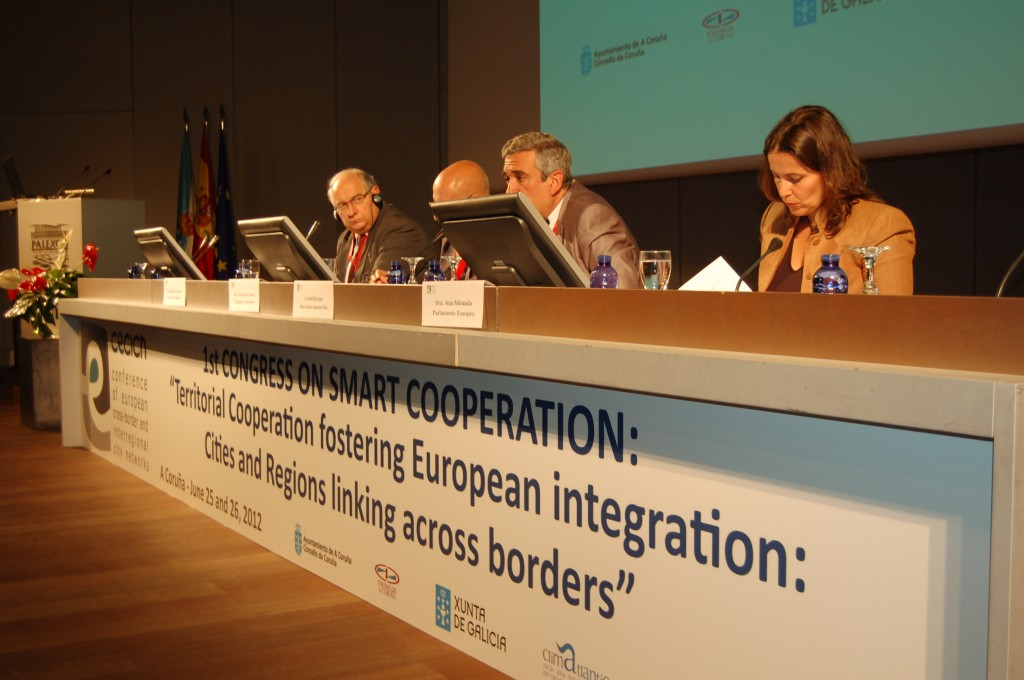
First congress on smart cooperation:
“Territorial Cooperation fostering European integration: Cities and Regions linking across borders“, 25 and 26 June 2012 in A Coruña, Spain. Nearly 400 participants participated in the first Congress on smart cooperation organised by the CECICN. The objectif of the Congress was to place the European territorial cooperation at the heart of the debate on the EU 2020 strategy, the revival of single market and cohesion policy.
Workshop during the OPEN DAYS 2013 :
“Territorial cooperation and single market: how to create tangible added value for citizens in cross-border territories and interregional networks“
Regular exchanges with the European institutions and actors at European level in order to put European territorial cooperation at the heart of European politics: European Commission DG REGIO/DG MARKT, Committee of the Regions, European Parliament, etc.
Following the meeting with the European Commission in 2012, the CECICN has worked in collaboration with DG REGIO on Cities in Macro-Regions, the Small project funds, the integrated territorial investments (ITI) and the joint action plans (JAP), and with DG MARKT on different topics concerning the single market and the European year of citizens (economic development, employment-training, energy, transports) (see Publications of the CECICN).
As from 2015, the main targets of our common network are:
- direct access to EU institutions
- development of strategies, positions
-enhance and promote cooperation.
Map
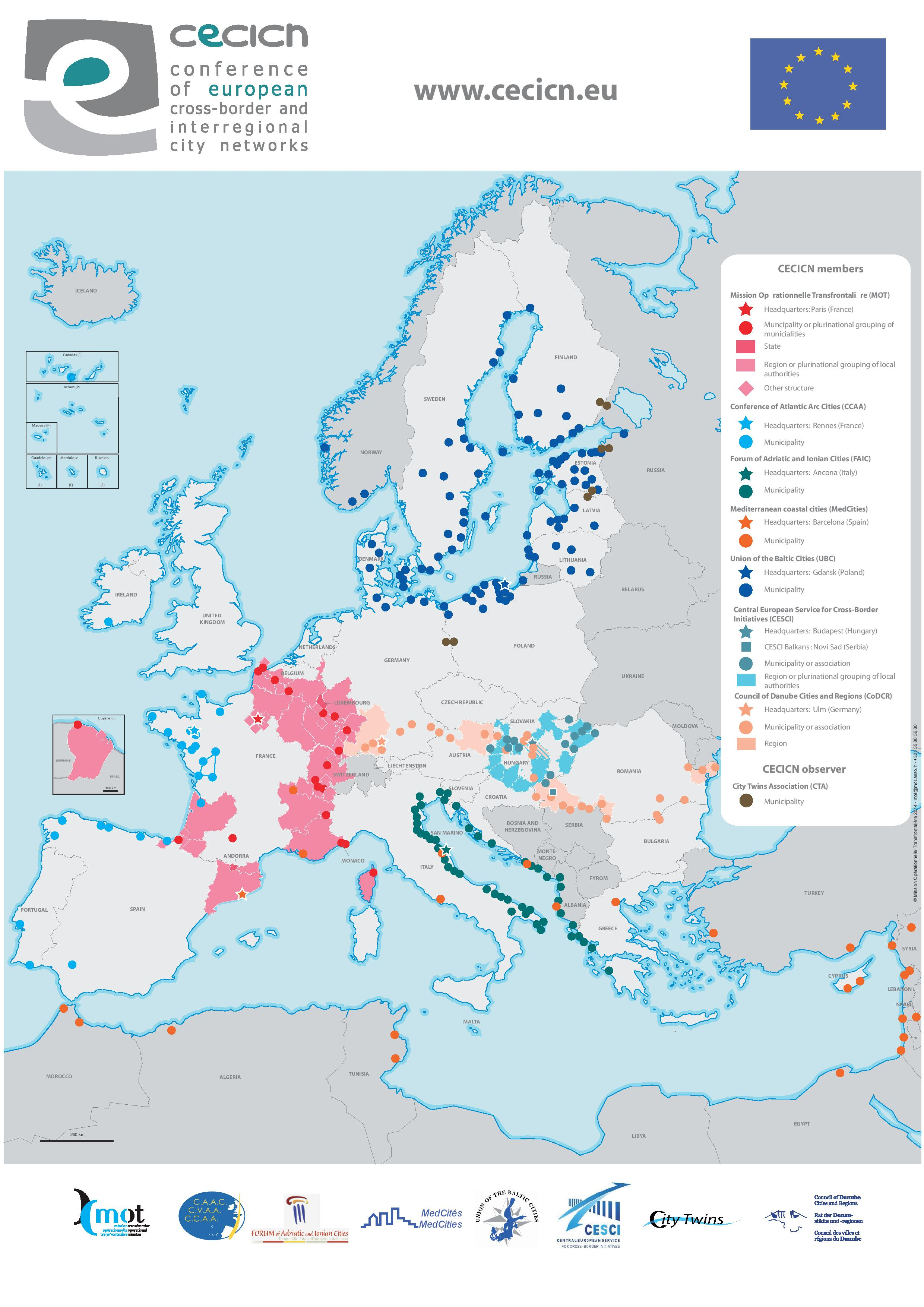
Presidency

Per Bødker Andersen, born in 1946, is deputy-mayor of the City of Kolding, Denmark. He has been member of the Committee of the Regions since 1998, where he has been sitting in CONST and CIVEX commissions.
He has a professional background as literary agent and publisher. He began his political career in the Social Democratic Youth of Denmark, and was on the executive board of “Socialdemokratiet” from 1973-84. He was a member of the national executive committee of the Danish Social Democratic Party and was elected to the town council of Kolding in 1974 after a period of being the chairman of the environmental committee. He has been mayor of Kolding between 1985 and 2009.
Per Bødker Andersen is dedicated to environment, climate and energy. Under his leadership as Mayor of Kolding, the City has established a local climate and energy strategy and, in 2008, was recognised by the Danish Climate and Energy Minister as one of the official six energy cities in Denmark.
He is also interested in neighbourhood policy, and East-Western partnership.
Per Bødker Andersen is President of the Union of the Baltic Cities (UBC), and the Conference of European Cross-border and Interregional City Networks (CECICN).
Letter March 10,2012
Letter of December 16, 2013
Letter of January 30, 2015
Political board: Decision recommendation
Urban Policy
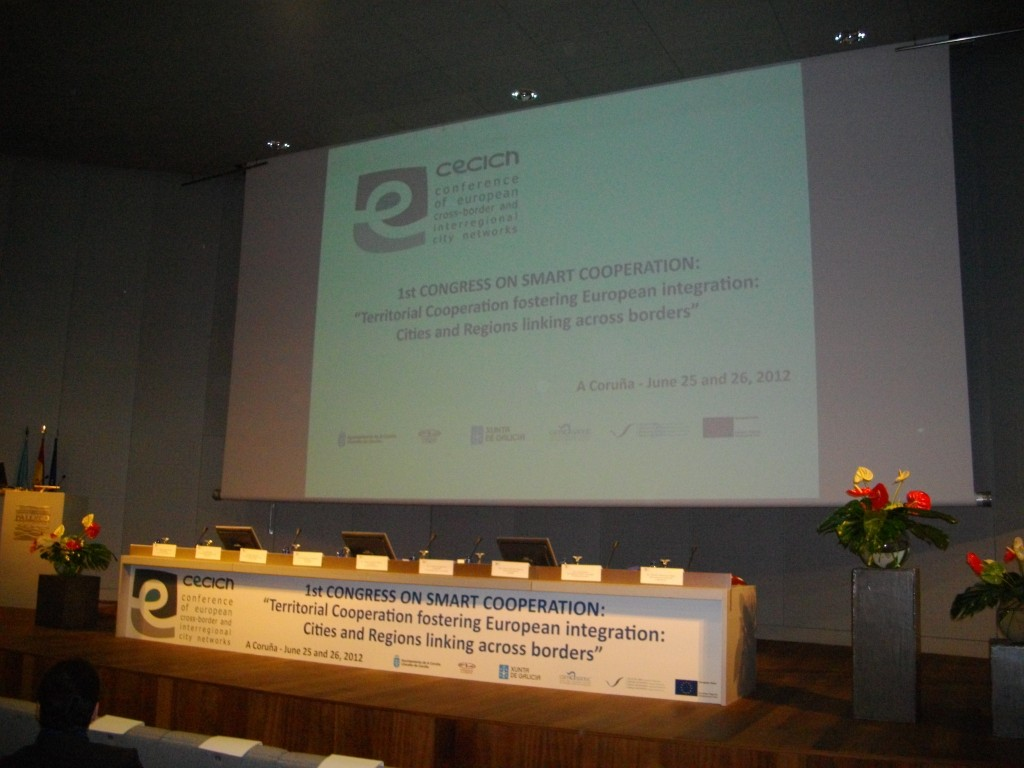
Publications
CECICN contribution to: Public consultation – overcoming obstacles in border regions – online survey, December 2015
Policy document: Answer to the 5th cohesion report
CECICN-AEBR Strategic document on smart cooperation:
“Territorial coopération fostering European integration: Cities and Regions linking across borders“, May 2012
“La Coopération Territoriale accélérateur de l’intégration européenne : les Villes et les Régions, traits d’union par‐delà les frontières“, Mai 2012
“Cooperación territorial para el fomento de la integración europea: Ciudades y Regiones, lazos a través de las fronteras“, Mayo 2012
Policy document: “The urban dimension of macro-regions”, May 2013
Policy document: Contribution to the Consultation of the Committee of the Regions on the mid-term review of Europe2020, October 2013
Policy document: Contribution for DG MARKT “Single market-topics in link with citizenship”, October 2013
Policy document: Contribution for DG REGIO “Integrated territorial approaches and Small project funds within the 2014-2020 programming period”, November 2013
Policy document: Contribution of the CECICN to the consultation “An EU Urban Agenda?” of the European Commission, March 2014
Policy document: Contribution of the CECICN to the questionnaire on the execution of the EU budget, of the Committee of the Regions, March 2014
Policy document: Contribution to the public consultation on the Europe 2020 strategy, September 2014.
Political statement: Support the end of roaming charges in Europe, September 2014.
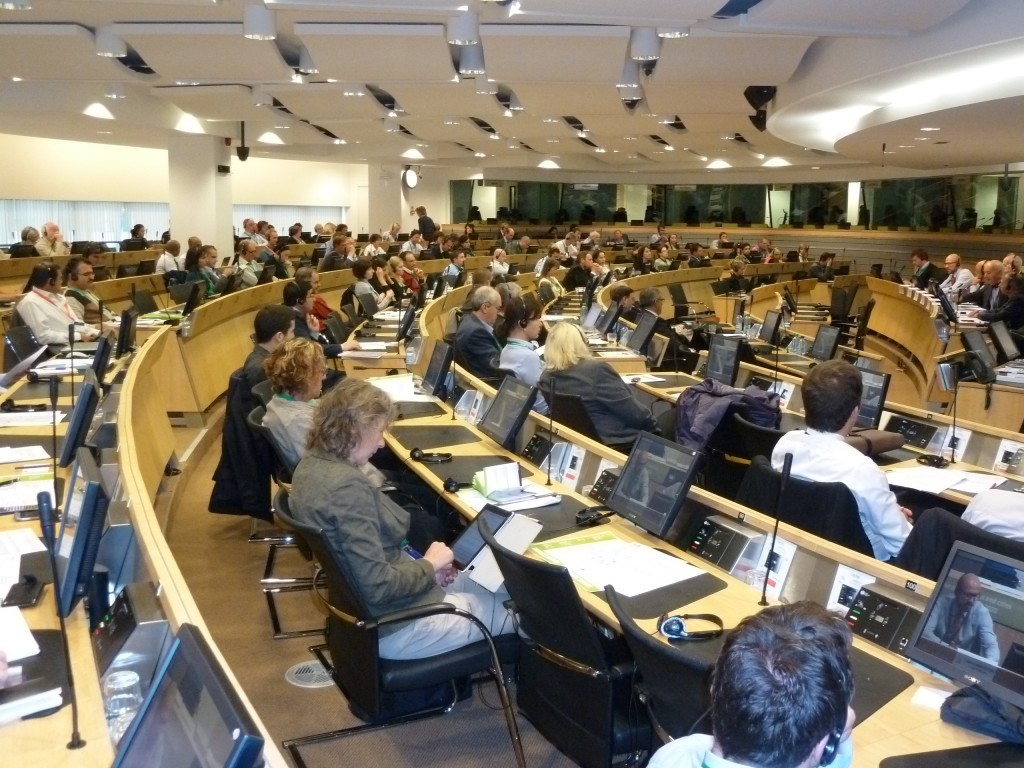
EU documents
Towards EU Urban Agenda
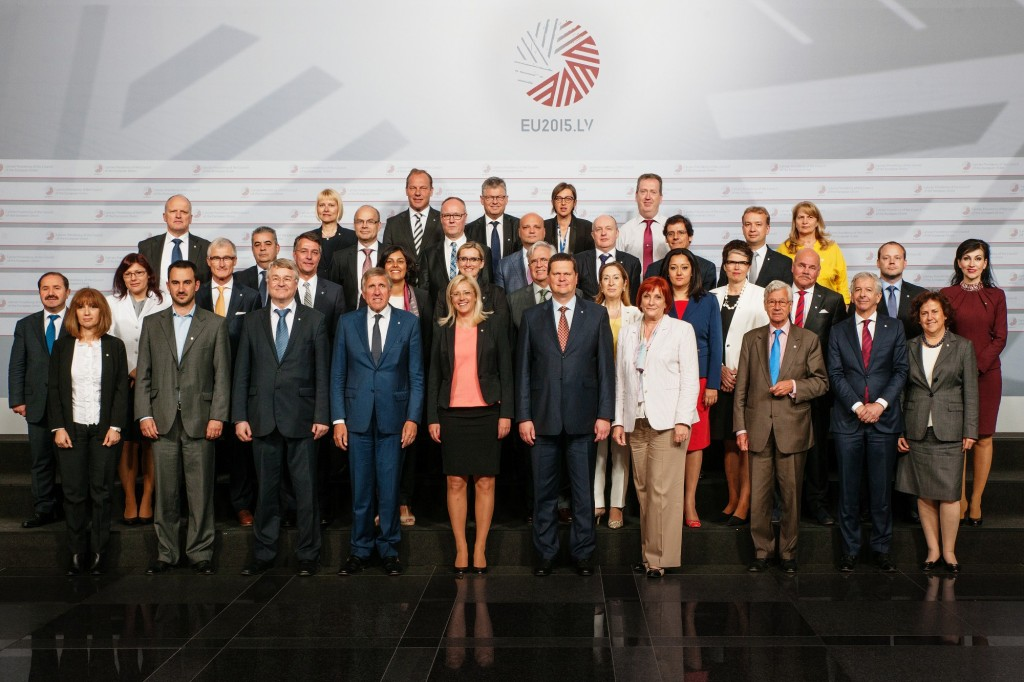
On Wednesday 10 June, the informal meeting of Ministers responsible for Cohesion policy, Territorial Cohesion and Urban Matters entered its second day, as the Ministers responsible for Territorial and Urban Development met in Riga to discuss the development of the EU Urban Agenda.
At the meeting, the participants agreed on the Riga Declaration “Towards the EU Urban Agenda’’, prepared by the Latvian Presidency.
The Latvian Minister for Environmental Protection and Regional Development Kaspars Gerhards stressed: ”Agreement on the Riga Declaration is a significant step towards the development of the EU Urban Agenda. I am pleased that we have managed to prepare a balanced declaration text, taking into account the interests of the various stakeholders and respecting the principles of subsidiarity and proportionality.This agreement is significant for the Latvian Presidency. It emphasises the importance of the role of small and medium-sized urban areas must be taken into account when developing and implementing the EU Urban Agenda.”
The Declaration identifies the key elements and principles that should be taken into account in future work on development of the EU Urban Agenda during the upcoming Presidencies.
The main elements of the EU Urban Agenda covered by the Declaration are: recognition of the diversity of urban areas, focus on opportunities offered by urban areas, improvement of the urban dimension of EU policies and cooperation between urban areas.
EU Towns : diverse settlement pattern
19 May 2015 – ESPON provided new territorial evidence on the urban system in Europe. In this context, small and medium sized towns as well as very small towns play an important role for territorial development. As the map shows, three main types of urban areas and towns can be identified in Europe:
High-density Urban Clusters (HDUC) with more than 50.000 residents;
Small and Medium Sized Towns (SMST) with between 5.000 – 50.000 residents;
Very Small Towns (VST) with less than 5.000 residents.
In terms of the distribution of population settlements across Europe, three groups of countries are visible:
Countries with a rather balanced distribution of population between high-density urban clusters and small and medium-sized towns, like Austria, Bulgaria, the Czech Republic, Denmark, Estonia, Finland, Italy, Latvia, Poland, Portugal, Romania, Sweden and Slovenia.
Countries with an overrepresentation of population living in smaller settlements like France, Hungary, Ireland, Lithuania, Luxembourg, Norway and Slovakia.
Countries in the central part of Europe, with high-density urban clusters as well as a large number of small and medium-sized towns, stretching from the south of England across the Benelux countries and west of Germany to north and north-east Italy.
The global trend shows that more and more people are moving from small settlements to big cities. However a majority of the EU population still lives in small and medium-sized towns or very small towns. These towns play a crucial role both in the central regions of Europe, which are home to a large part of the EU population and have the largest share of GDP in the EU; as well as in regions with a wider distribution of population, e.g. in central Finland, Latvia, Lithuania, central Spain, and large parts of Italy.
European towns should increase territorial cooperation.
Territorial cooperation involving towns can bring a number of potential benefits for all parties concerned (i.e. towns, nearby cities, rural hinterland). By engaging in partnerships, towns can pool their existing strengths and resources more efficiently, but also address their common challenges in a more coordinated manner. Cooperation allows them to create a relevant critical mass for ensuring sustainable accessibility to activities and services, which can have a positive impact on the local and regional attractiveness.
This is particularly important at a time when many towns/municipalities, regions and countries experience significant cutbacks in public expenditures and subsequent reductions of public services and activities. For example, territorial collaboration among towns can contribute to overcoming competition between neighbouring local authorities. Furthermore, it can enhance the economic growth of functional urban areas through daily commuting patterns, as well as territorial de-concentration of firms and residents.
Ultimately territorial cooperation promotes a balanced and polycentric development at regional, national and European level, and can contribute to achieving common European objectives. ESPON scenario work underpins this. If European Cohesion predominantly targeted small and medium sized towns and rural regions, territorial cohesion in Europe would increase by 2050.
Territorial Cooperation and Single Market
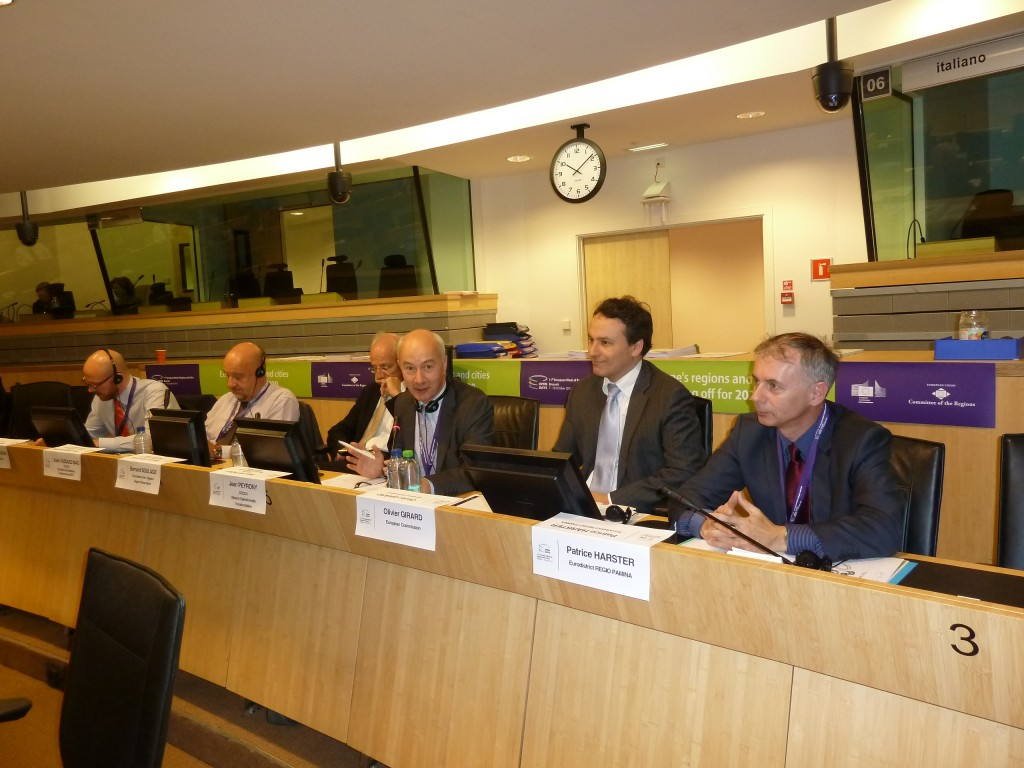
The workshop “Territorial Cooperation and Single Market: how to create tangible added value for citizens in cross-border territories and interregional networks” (code 09B02) was organized on Wednesday 9 October 2013 from 9:00 to 10:45 in Brussels in the context of the OPEN DAYS. Venue: Committee of the Regions, Jacques Delors building, room JDE 62. The workshop was organized by the CECICN (Conference of European Cross-border and Interregional City Networks). It was chaired by Bernard SOULAGE, Member of the Committee of the Regions and Vice-President of the Region Rhône-Alpes. Please find the programme, the minutes and a short report below.
The CECICN workshop was followed at 11:15 am by the workshop “The European Groupings of Territorial Cooperation: cross-border players in the Single Market” (same room, subscription: code 09B07) of the EGTC Platform of the Committee of the Regions, and at 1:00 pm by a “common networking event” of the two workshops (open to everybody without subscription) in the atrium at the 5th floor.
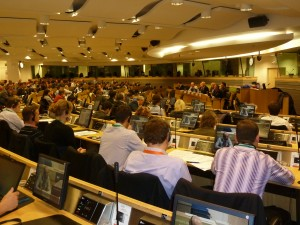
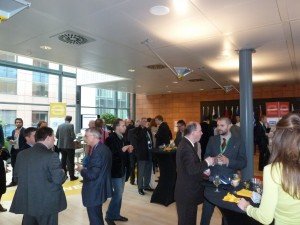
- Programme
- Powerpoint of CECICN workshop
- Powerpoint of common networking event of CECICN and the EGTC Platform of the Committee of the Regions
- Short Report
- Minutes
- Compte-rendu
Smart Cooperation
1st Congress on Smart Cooperation
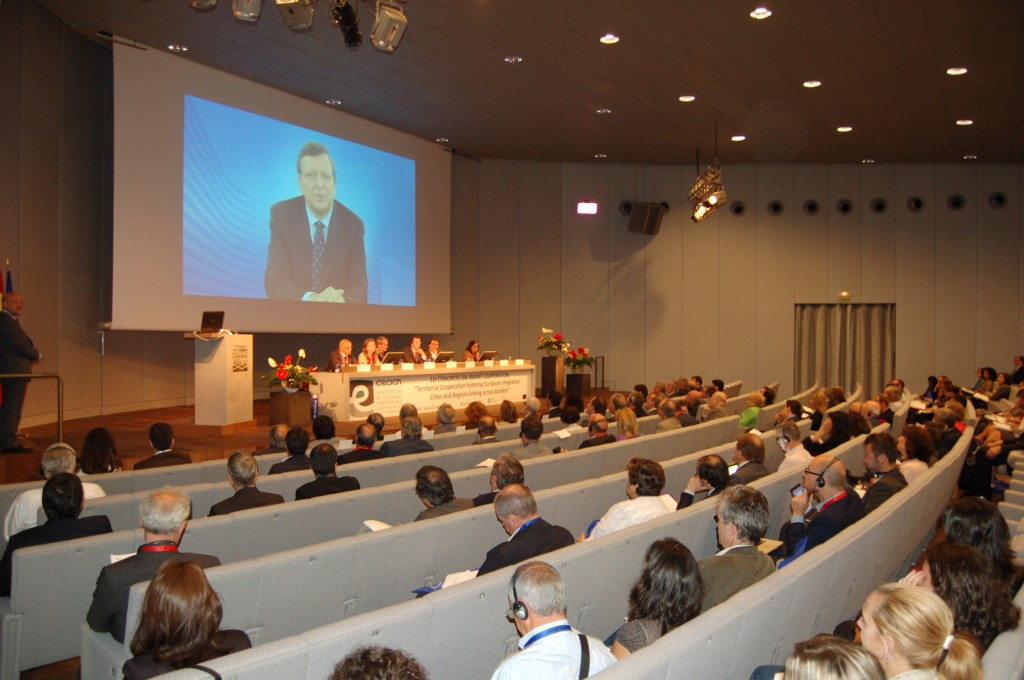
Nearly 400 participants met on 25 and 26 June at La Coruña in Spain at the “1st Congress on Smart Cooperation” organised by the CECICN.
A lot of personalities were present: Michel Delebarre, President of COTER, Committee of the Regions and president of the MOT, Per Bødker Andersen, President of the CECICN and President of the Union of the Baltic Cities, Carlos Negreira, Mayor of A Coruña, Alberto Núñez Feijóo, Regional President of Galicia, Marta Fernández Currás, Spanish Secretary of State for budget and expenditure, Ann-Sofi Backgren, AEBR Vice-President, Ana Miranda, MEP, Representative of the Parliamentary Committee on Regional Development, José Palma Andrés, Director of European Territorial Cooperation, DG REGIO and Henrik Morch, Head of Unit, DG MARKT.
In his address, Michel Delebarre summed up the issues of the conference: “We know that the current European and international context is one troubled by the debt crisis.” “I have the deep conviction that the response to this crisis is more Europe, more cooperation between cities and regions across borders”. In addition to the need for a sufficient budget for the European cohesion policy, he emphasized the importance of finding mechanisms to allow for “a greater association of local stakeholders”: “We need a Europe built on its territories”.
Discussions showed that the challenges that Europe is facing cannot be solved without a sustained “cooperation“, and that the message has been brought to all levels (European, national, regional and local): it is essential to place the European territorial cooperation at the heart of the EU 2020 strategy, the revival of single market and cohesion policy itself defined as “vital” to get out of the crisis.
José Durão Barroso, president of the European Commission,participated through a video message encouraging CECICN to take an active part in the current negotiations for the future programming period.
Agenda and Opening
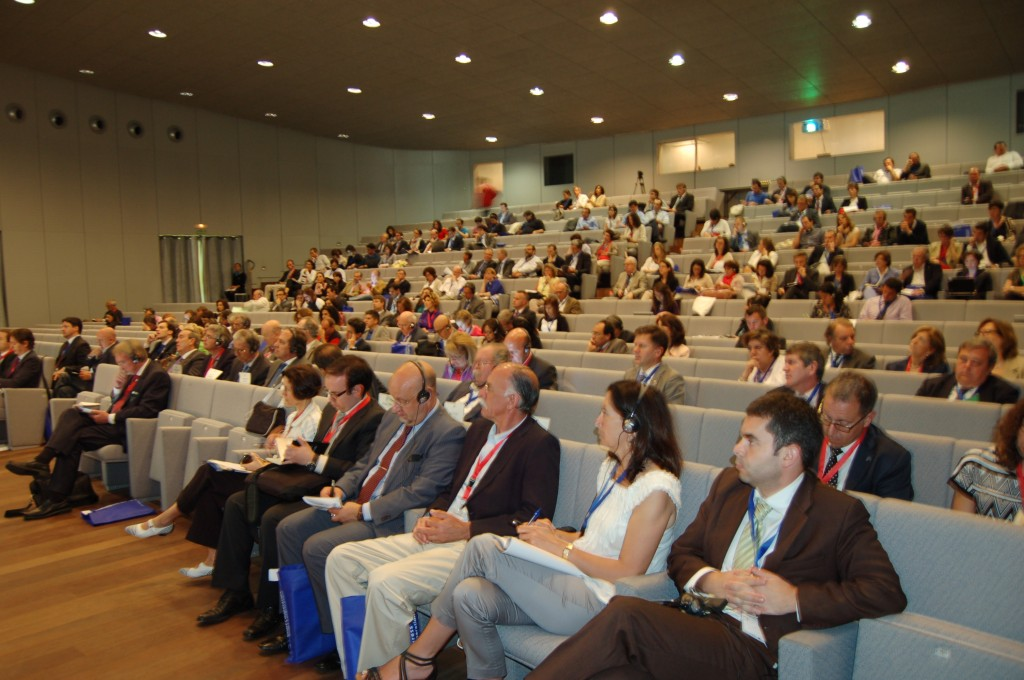
Agenda / Programme:
Opening by President Barroso:
Document and Conclusions
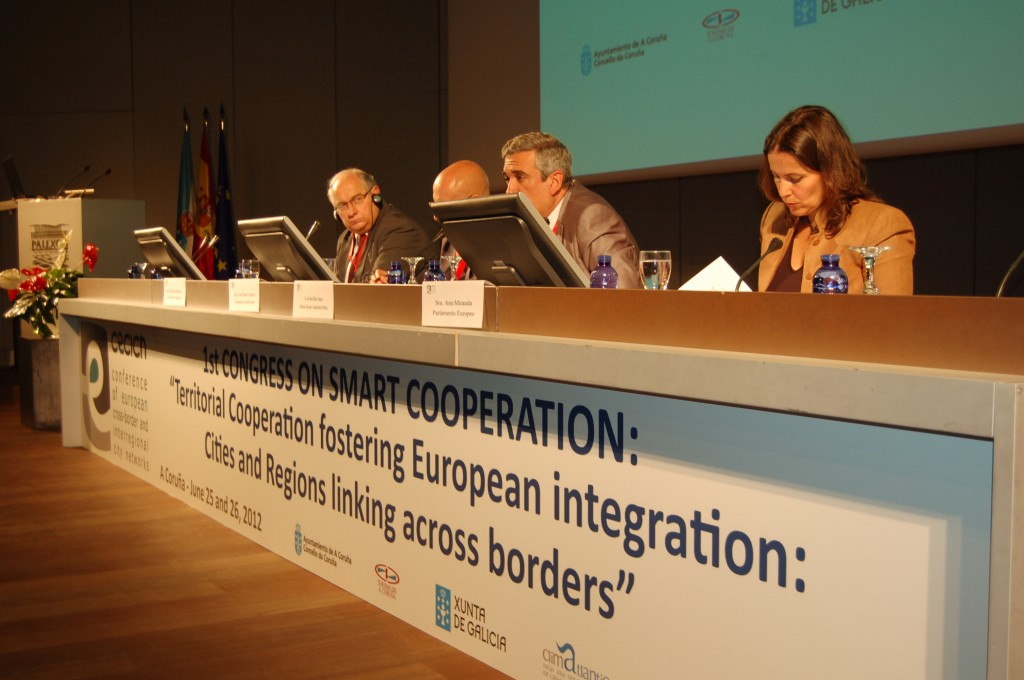
Versión en español: Cooperación territorial para el fomento de la integración europea: Ciudades y Regiones, lazos a través de las fronteras
English version: Territorial coopération fostering European integration: Cities and Regions linking across borders
Version française: La Coopération Territoriale accélérateur de l’intégration européenne : les Villes et les Régions, traits d’union par‐delà les frontières
calendrier-scolaire.education
Presentation of the conclusions: Conclusions
Workshops 1-3
- EU macro Regional Strategies
- A tool for economical and social development
- ENI Regulation and CBC Implementing rules for the period 2014-2020
- La coopération sur les frontières extérieures de l’UE 25 ET 26 juin 2012
- The Cooperation at the External Borders of the EU June 25th and 26th, 2012
- Decentralized cooperation with Cities of Mediterranean Region
- UFM guidance framework for sustainable euro-mediterranean cities and territories
Workshop 4
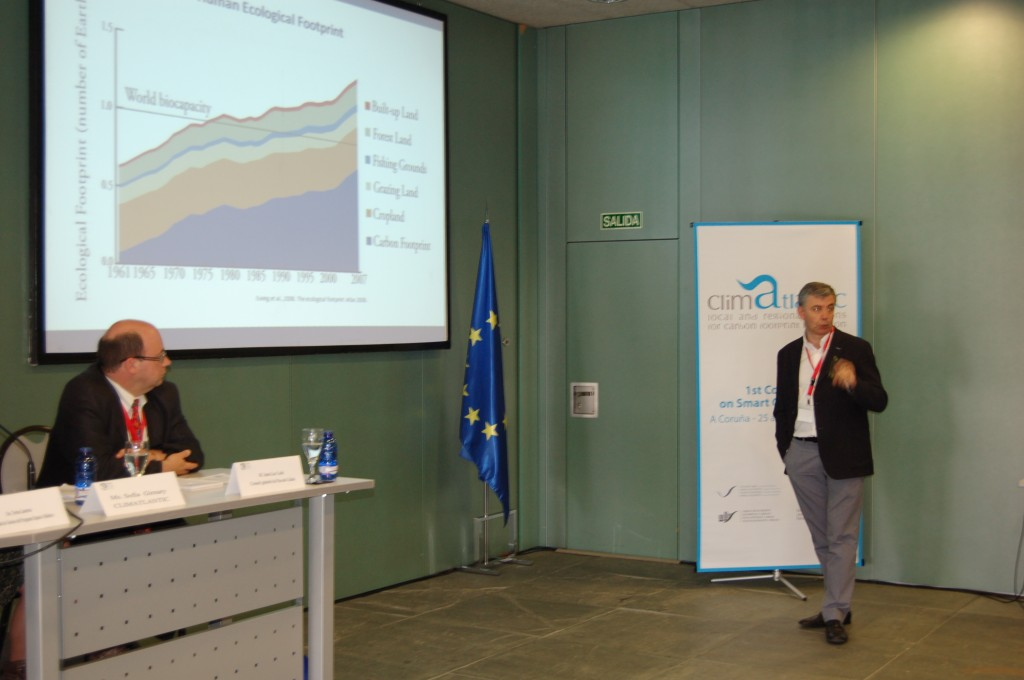
Presentations:
- Contribution of Interregional Cooperation to Smart Growth
- The Midnoric Committe
- Smart and green city in Estonia
- Cooperation contributing to smarth growth: Dressed for sucess
- Research and Innovation Strategies for Smart Specialisation and EU cohesion policy
Workshop 5
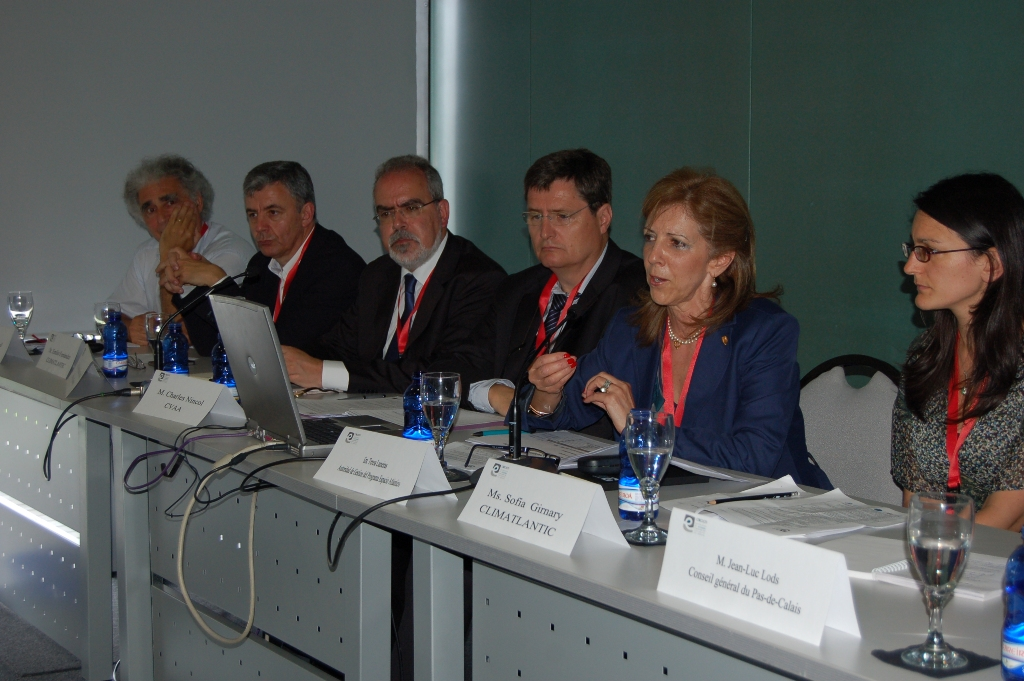
- Mobility pillar strategy
- Spatial planning pillar strategy
- European Straits Initiative
- An Atlantic Strategy to reduce the emissions and carbon footprint
- Social Behaviour Pillar Strategy
- Energy reduction and renewables
Workshop 6
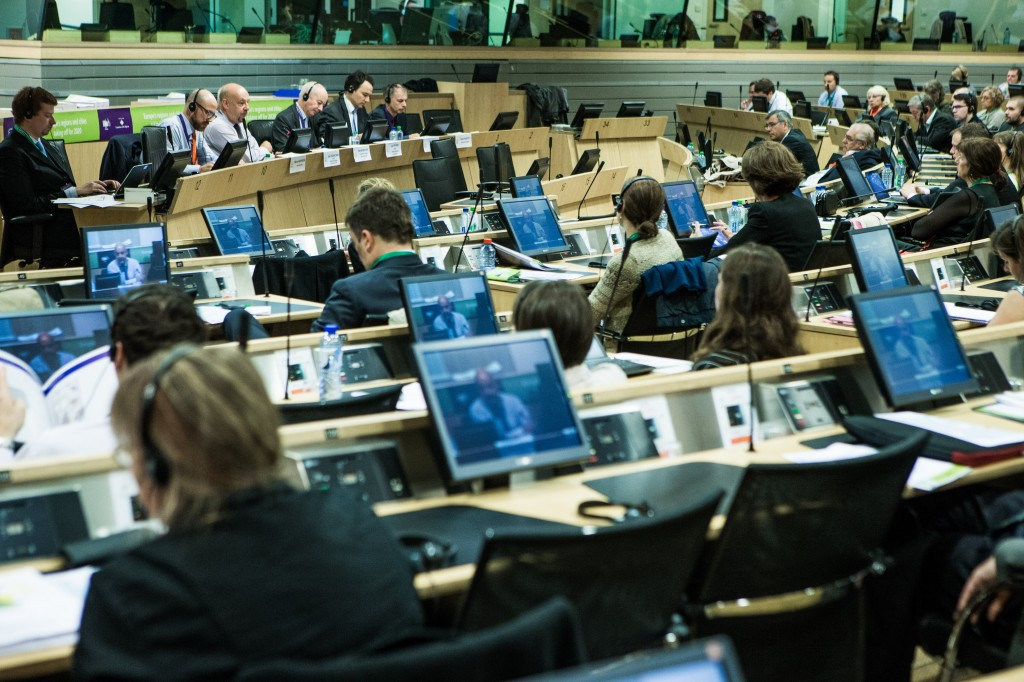
- Pons Danubii EGTC
- Strasbourg, European Capital
- Cooperation: from tools to frameworks
- Tools for cooperation
© 2024 CECICN